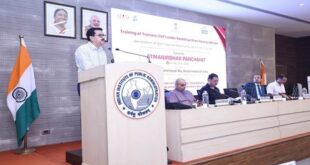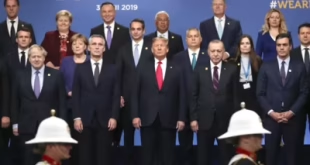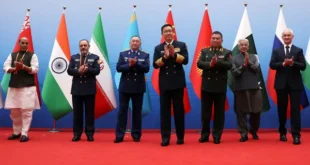- The Supreme Court observed that no one in India votes for a candidate based on their educational qualifications. Thus, providing false information about a candidate’s educational qualifications cannot amount to a “corrupt
- The Supreme Court refused to interfere with the Allahabad High Court’s order of dismissal regarding the original petition.
- The Supreme Court observed that no one in India votes for a candidate based on their educational qualifications and, thus providing false information about an electoral candidate’s qualifications cannot be considered a “corrupt practice” under Sections 123 (2) and Section 123 (4) of the Representation of People’s Act, 1951.
What happened in the present case?
- In “Anugrah Narayan Singh v. Harsh Vardhan Bajpayee”, a bench of Justices K.M. Joseph and BV Nagarathna of the Apex Court heard a plea challenging a 2017 Allahabad High Court ruling, dismissing a similarly titled petition to declare the election of a BJP MLA as “null and void”.
- However, the Apex Court refused to interfere with the High Court’s order of dismissal.
- The “inaccuracy or concealment regarding educational qualification of the respondent did not amount to unduly influencing the voters, as the defect in disclosure was not of substantial character that could have materially prejudiced the prospects of the election, for it to be termed as a corrupt practice within the meaning of Section 123 of the Representation of People Act.”
What are ‘corrupt practices’ under the RPA, 1951?
- Section 123 of the Act defines ‘corrupt practices’ to include bribery, undue influence, false information, and promotion or attempted promotion of “feelings of enmity or hatred between different classes of the citizens of India on grounds of religion, race, caste, community, or language” by a candidate for the furtherance of his prospects in the election.
- Section 123 (2) deals with ‘undue influence’ which it defines as “any direct or indirect interference or attempt to interfere on the part of the candidate or his agent, or of any other person, with the consent of the candidate or his election agent, with the free exercise of any electoral right.”
- This could also include threats of injury, social ostracism and expulsion from any caste or community.
- Moreover, convincing a candidate or an elector that they will become “an object of divine displeasure or spiritual censure” will also be considered an interference “with the free exercise of the electoral right of such candidate or elector.”
- Section 123 (4) extends the ambit of “corrupt practices” to the intentional publication of false statements which can prejudice the outcome of the candidate’s election.
- Under the provisions of the Act, an elected representative can be disqualified if convicted of certain offenses; on grounds of corrupt practices; for failing to declare election expenses; and for interests in government contracts or works.
What practices has the court held as corrupt practices in the past?
- In 2017, a seven-judge constitution bench of the apex court held that an election will be annulled if votes are sought in the name of a candidate’s religion, race, caste, community, or language, as per Section 123 (3) which prohibits the same.
- However, “To hold that a person who seeks to contest an election is prohibited from speaking of the legitimate concerns of citizens that the injustices faced by them on the basis of traits having an origin in religion, race, caste, community or language would be remedied is to reduce democracy to an abstraction.”
- In 1994, the Supreme Court’s ruling in “SR Bommai v. Union of India”, which otherwise held secularism to be a part of the ‘basic structure, the court said, “whatever the attitude of the State towards the religions, religious sects, and denominations, religion cannot be mixed with any secular activity of the State.”
- The encroachment of religion into secular activities is strictly prohibited, the court stated while adding that the same is clear from sub-section (3) of Section 123 of the Representation of the People Act, 1951.
- However, even as far back as 1955, the Apex Court in “Jamuna Prasad Mukhariya v. Lacchi Ram” upheld the constitutional validity of Section 123 (3).
- More recently in 2022, the top court directed a three-judge bench to look into prayers for reconsidering its 2013 judgment in “S. Subramaniam Balaji vs State of Tamil Nadu” where the court held that promises of freebies cannot be termed a corrupt practice.
- However, the matter is still yet to be decided.
SOURCE: THE HINDU, THE ECONOMIC TIMES, PIB
 Chinmaya IAS Academy – Current Affairs Chinmaya IAS Academy – Current Affairs
Chinmaya IAS Academy – Current Affairs Chinmaya IAS Academy – Current Affairs



